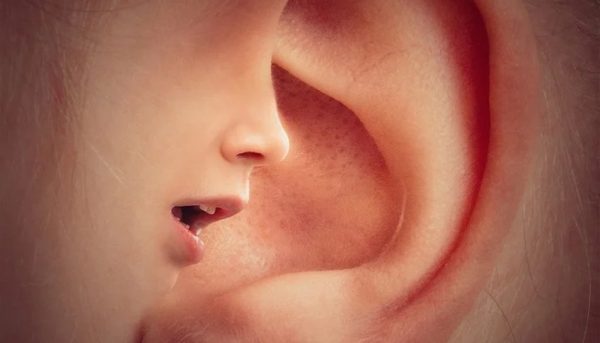
Protect Your Hearing & Ear Health
At one stage of our lives we might experience hearing loss or hard of hearing the sounds around us. Some hearing loss can be improved according to experts.
The three kind of hearing loss are:
Conductive hearing loss – This can be improved sometimes. It is caused by allergies, ear infections, otosclerosis of bones in inner ear or cholesteatoma, the cyst formation in inner ear. These medical issues can be fixed with medical help and hearing can be stored.
Sensorineural hearing loss – cannot be reversed. This hearing loss is due to the external factors including the age. Medications, diseases and overall health, noise level are few reasons for this. These factors can damage tiny sensory hairs in the cochlea of the ear. These structure cannot be repaired or fixed.
Mixed hearing loss – a combination of sensorineural and conductive hearing loss.
Degree of hearing loss:
- Mild type: In Mild type hearing loss one may hear some speech sounds, but will have difficulty with soft sounds.
- Moderate type: In moderate loss, one will struggle to hear or understand speech when someone is talking at a normal level.
- Severe type: One will hear little-to-no speech when spoken at normal levels, and hear only some loud sounds.
- Profound type: Ione will hear only hear very loud sounds in profound degree hearing loss
How to keep hearing health in good condition?
Keeping ears in healthy condition will have good impact on our listening and sound quality. To maintain good hearing capacity, irrespective of age following tips will help.
- Be mentally active: Do you know? Brain plays an important role in processing information that we receive in our ear? Anxiety, depression, stress has negative impact on hearing. Brain needs good workout. Brain exercises such as sudoku, word escapes, crossword puzzles, solving math problems, bingo, pokers – are great ideas to work your brain.
- Turn down the volume: The habit of listening to loud music, beats of the music, increased TV volume or video games has hugs impact on hearing. Keep noise down as much as possible. Doctors suggest that 85 decibels or louder sound an harm ear. If you cannot control the volume, move away from the sound or wear hearing protection such as ear bud or cover with ear covers.
- Ear wax: Sometimes ear wax could cause hearing issue and interfere in receptive to sounds. Talk to doctor and check for build up wax in ears. Your doctor will suggest whether wax should be removed if it is causing an issue on hearing.
- Stop smoking: Studies show that smoking and hearing loss are correlated. It is important to maintain healthy blood flow to inner ear cells. Prolonged exposer to carbon monoxide and nicotine can harm oxygen supply to ear cells. To improve hearing quality quit smoking today!
- Daily exercise: Exercise in any form improves blood circulation. It can be aerobic exercise, walk or work in gardening. Instead of sitting idle and watching TV, start moving to improve ear health.
- Practice yoga: Yoga has positive impact on hearing. Yoga helps to focus and several poses of yoga improves oxygen supply to head and ear. For example shirsasana (head stand), downward dog pose, leg up the wall, shoulder stands are some of the poses will assist better hearing by improving nerve functions and also by removing toxins.
- Meditation: Focusing on breathing while meditating will help blood circulation. Focus on sounds will help to concentrate on deciphering sounds in noisy settings. Thus meditation improves quality of hearing.
- Nutritious food: It is important to focus on diet too. Potassium is an important mineral that needs for good hearing. It plays a major role in inner ear function and in converting sounds to signals for brain to interpret further. Consume banana, potato, bean, and foods that are rich in potassium. Another mineral that is present in almond, cashews and other nuts is zinc. Zinc is effective in treating tinnitus, ringing, or buzzing sound. Folic acid is slows down the onset of hearing loss with age. Folate is important to maintain regular blood flow to ear. Consume leafy vegetables such as spinach, amaranthus, palak, broccoli to get more folic acid. Magnesium is important to fight free radicals and acts as a barrier to protect sensory hair or cochlea. Include Vitamin B in your diet to help nerve health.
- Diabetes control: Elevated blood sugar levels increases risk of hearing loss. High blood sugar damages blood vessels and nerves in the inner ear. It is important to control blood sugar by controlling diet and taking proper nutritious food.
- Regular ear check up: Talk to your doctor about hearing test and for a ear checkup. Your physician may refer you to a hearing professional, who can help determine the type, cause and degree of your hearing loss and will be able to help you to maintain good hearing.
References:
- https://www.starkey.com/hearing-loss/types-and-causes
- http://andersonaudiology.com/improve-your-hearing/
- https://hearinghealthfoundation.org/blogs/how-nutrition-affects-our-hearing
- Image credit: Image by Thomas Wolter from Pixabay (Free for commercial use CC by 0)
Author: Sumana Rao | Posted on: March 29, 2023
« Do you know these Benefits of Salt ? Are you suffering from Frequent Urination at Night or Nocturia »






















Write a comment